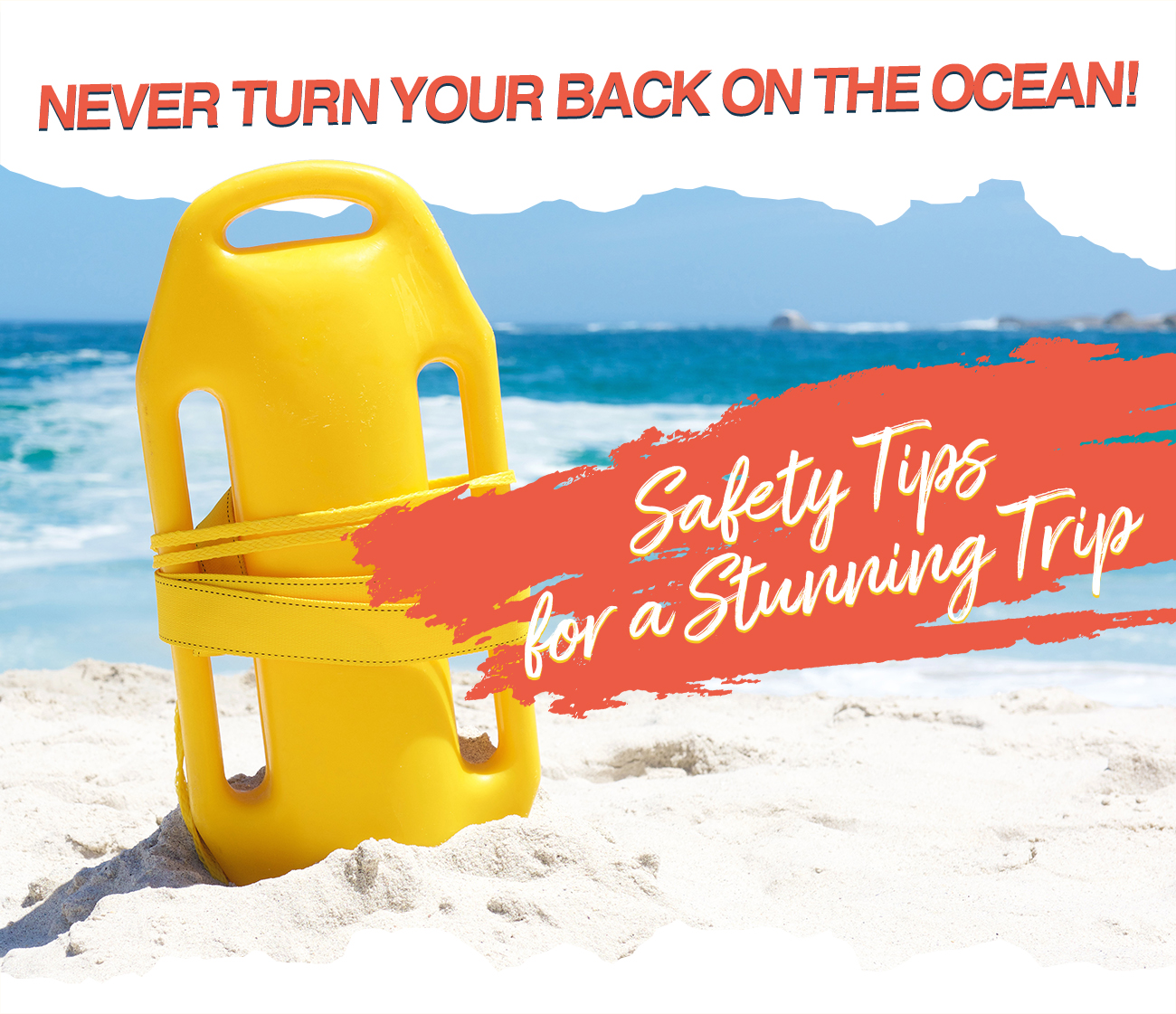Must-Know When Visiting Hawaii: Ocean Safety
26th Mar 2021

With gorgeous beaches, turquoise waters, white, silky sand, and ideal surfing waves, Hawaii attracts people from all over the world, promising a memorable escape sprinkled with plenty of fun and relaxing moments.
Whether you travel alone, with your better half, friends, or excited kids, Hawaii’s beaches are perfectly safe for people of all ages and experience levels. There are, however, areas that pose risks, especially to thrill-seekers searching for remote spots and inexperienced swimmers.
To ensure a thoroughly safe, enjoyable escapade, continue reading, learn about ocean safety in Hawaii and take advantage of the tips we put together for you.
Enjoy Your Swim, But Watch the Signs
Hawaii is known for being a surfers’ paradise. While this is a superb feature, it also means that sometimes, the high surf, dangerous shore breaks, and strong currents make the islands’ stunning beaches hazardous for swimming.
The best way to keep yourself safe is to read and obey the ocean safety signs at all times, no matter the season and location you choose. This is not advisable only for inexperienced visitors, as Hawaii’s waters injured and even killed professional local swimmers and surfers in the past.
Besides paying attention to the warnings, we also advise you to swim with a buddy, no matter how dangerous or safe the conditions are. And, if you are traveling with kids, make sure they never play in the water without an adult watching them.
Not Sure? Ask the Lifeguard!
Whether you are a beginner or a skilled swimmer, we advise you to always adventure in guarded waters. If there are lifeguards around, not only will you be and feel safer, but you can also find out about the current water conditions directly from them.
Lifeguards can also warn you about rip currents and potentially dangerous rocks hidden due to high tide. Besides prevention and ocean rescue, Hawaii’s lifeguard service includes emergency medical first responses, dispatched mobile patrol, education, outreach, and injury prevention programs.
So, to be sure you are out of harm’s way, choose to swim in an area within clear sight of the lifeguard tower.
Hunting Remote Spots? Be cautious!
Many travelers dream of spending their tropical escapades in remote areas, far away from the crowds. While this sounds idyllic, allowing you to enjoy the fine sand and warm sun quietly, we do not recommend swimming at a beach that has no lifeguard tower. If you decide to go to isolated areas, make sure you properly respect the ocean and stay beach safe.
During high surf periods, pay extra attention when climbing onto harmless-looking shoreline rocks or getting near the shore break. A wave can wash you into the waters in a split second. And, as we say in Hawaii, never turn your back on the ocean because this is the easiest way to get knocked down and pulled under the waves.
In case you choose to swim and find yourself facing a large wave, make sure you don't try to jump or swim over it, but dive under the wave as it moves over you.
And be careful with rip currents! They can be life-threatening, especially for inexperienced people who don't know how to escape them. If you are caught in one, you should swim parallel to the beach to get away from it. Once you have cleared the current, you can start swimming to shore.
In case you have trouble with swimming or can’t escape the current, try not to panic, as this will only enhance the possibility of being swept further away. Instead, stay as still as possible and wave or yell for help.
Be Aware of the Ocean Animals
We know you are excited to venture into snorkeling and SCUBA diving to admire the fascinating underwater world of Hawaii. While we encourage you to enjoy these thrilling water activities, we also advise you to stay aware of your surroundings, as this ecosystem includes some organisms that can be hazardous to humans, like several types of jellyfish and even sharks.
In case you’re bitten, stung, or injured at the beach, don’t hesitate to ask a lifeguard for help and medical assistance. And, though shark attacks are rare, make sure you avoid swimming offshore during dusk, dawn, and overnight hours when sharks are most active.
Following these tips and being mindful and informed at all times promise you a safe and memorable Hawaiian escapade. And, if you want to feel extra comfortable when exploring the islands and enjoying your beach time, we invite you to spoil yourself with a pair of local, hand-made, authentic, and durable Island Slippers, the best treat for your wandering feet.
